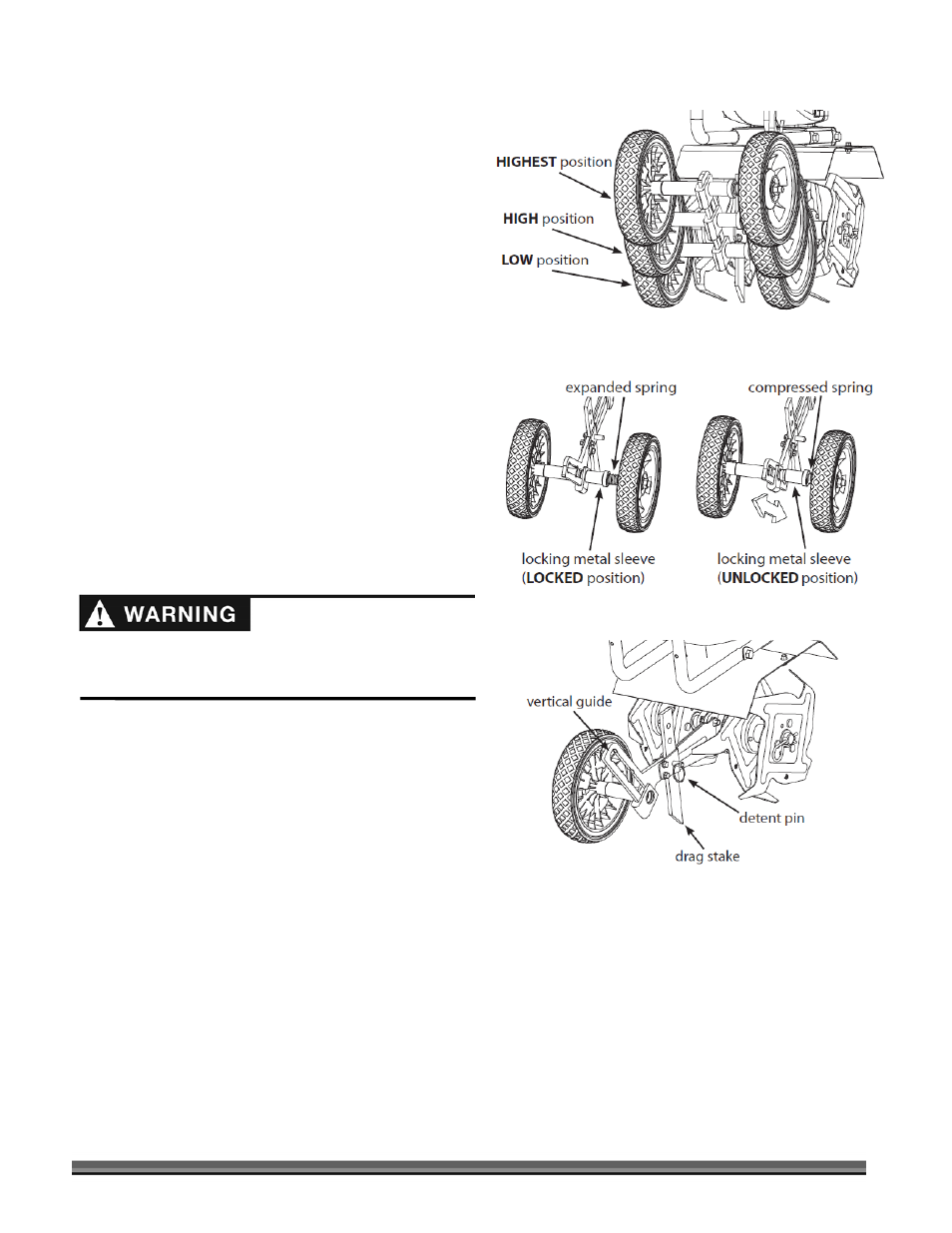Adjusting wheels and drag stake, Transporting your tiller – DR Power Mini Tiller Roto-Hog (January 2015 - Present) User Manual
Page 13

CONTACT US AT www.DRpower.com 13
Never transport engine inside an enclosed space within a
vehicle. Fuel or fuel vapors may ignite causing serious injury
or death.
Adjusting Wheels and Drag Stake
TO ADJUST WHEELS UP OR DOWN:
The wheels on the Tiller can be adjusted to one of three
positions (Figure 7). The LOW wheel position is used for
transporting the cultivator across a smooth level surface while
the engine is not running. The HIGH and HIGHEST wheel
positions are used when cultivating in soil and help stabilize
the unit when cultivating at different depths.
1. Pull the locking metal sleeve against the spring, away
from the vertical guide until it releases from one of the
three notched positions in the vertical guide (Figure 8).
2. Slide the wheel set up or down to the desired position,
and release the locking metal sleeve until it locks into
desired notch in the vertical guide.
TO ADJUST THE DRAG STAKE:
The drag stake is used to help regulate cultivating depth and
control the Tiller from leaping forward during operation.
Resistance to forward motion is greatest when the drag stake
is set in its lowest position allowing for deeper cultivation.
1. Pull the pin out of the drag stake mount hole (Figure 9).
2. Position the drag stake so the pointed tip is directed
downward.
3. Insert the pin into the hole that achieves desired depth.
Transporting Your Tiller
1. After using the tiller, and before transporting it in a truck
bed, check that the gas cap is screwed on (clockwise)
tightly. The gas cap will not leak during transporting if gas
cap is tight.
2. If fuel is present in the fuel tank, transport in an open
vehicle in an upright position.
3. If an enclosed vehicle must be used, remove gas into an
approved red fuel container. DO NOT siphon by mouth.
4. Wipe away any spilled fuel from engine and tiller. Allow to
dry.
5. Run engine to use up the fuel in the carburetor and fuel
tank. Always run engine in a well ventilated area.
Figure 7
Figure 8
Figure 9
